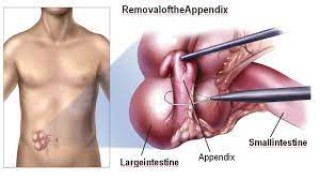Advances in Laparoscopic Resection of Adrenal Gland Myelolipoma: A Minimally Invasive Approach
Add to
Share
1,244 views
Report
2 years ago
Description
Introduction: The field of surgical intervention has witnessed remarkable advancements in recent years, particularly in the domain of minimally invasive procedures. Laparoscopic resection, a minimally invasive surgical technique, has gained significant attention for the treatment of adrenal gland myelolipoma. This essay explores the advances in laparoscopic resection of adrenal gland myelolipoma, highlighting the benefits and outcomes associated with this approach. Understanding Adrenal Gland Myelolipoma: Adrenal gland myelolipoma is a rare benign tumor composed of mature fat cells and bone marrow elements. While often asymptomatic, larger myelolipomas can cause pain or discomfort due to their size or mass effect on adjacent structures. Historically, open surgical techniques such as open adrenalectomy were employed for the removal of myelolipomas. However, these procedures were associated with significant morbidity, prolonged hospital stays, and recovery periods. The Advent of Laparoscopic Resection: In recent years, laparoscopic resection has emerged as an effective alternative for treating adrenal gland myelolipoma. This minimally invasive approach involves making small incisions and utilizing specialized surgical instruments, including a laparoscope, to visualize and remove the tumor. The laparoscopic technique offers several advantages over traditional open surgery, making it a preferred choice for both patients and surgeons. Benefits of Laparoscopic Resection: Reduced surgical trauma: The minimally invasive nature of laparoscopic resection results in smaller incisions, leading to decreased surgical trauma and postoperative pain. Patients experience less scarring and have a quicker recovery time compared to open surgery. Shorter hospital stays: Laparoscopic resection allows for shorter hospital stays due to reduced surgical trauma and faster postoperative recovery. Patients can resume their normal activities sooner, resulting in improved quality of life. Lower complication rates: Studies have demonstrated that laparoscopic resection of adrenal gland myelolipoma is associated with lower complication rates compared to open surgery. This includes reduced risks of infection, bleeding, and postoperative complications. Improved cosmetic outcomes: The smaller incisions used in laparoscopic resection result in better cosmetic outcomes, which are highly appreciated by patients. Outcomes and Efficacy: Multiple studies have reported favorable outcomes and efficacy of laparoscopic resection in the treatment of adrenal gland myelolipoma. Research has shown that laparoscopic resection achieves complete removal of the tumor with a high success rate. Additionally, this approach offers comparable long-term outcomes to open surgery in terms of recurrence rates and overall survival. This topic explores the advances in laparoscopic resection of adrenal gland myelolipoma, focusing on the application of a minimally invasive approach for the surgical removal of this rare benign tumor. The essay highlights the benefits of laparoscopic resection, including reduced surgical trauma, shorter hospital stays, lower complication rates, and improved cosmetic outcomes. The efficacy of this technique is discussed, emphasizing its ability to achieve complete tumor removal with favorable long-term outcomes. The description underscores the potential of laparoscopic resection to become the standard of care for adrenal gland myelolipoma, with ongoing research and advancements shaping its role in optimizing patient outcomes and enhancing the surgical experience. Conclusion: Advances in laparoscopic resection of adrenal gland myelolipoma have revolutionized the management of this rare tumor. The minimally invasive nature of the procedure provides numerous benefits, including reduced surgical trauma, shorter hospital stays, lower complication rates, and improved cosmetic outcomes. As more surgeons adopt this approach and techniques continue to evolve, laparoscopic resection will likely become the standard of care for adrenal gland myelolipoma. Further research and long-term follow-up studies are necessary to validate the efficacy and safety of this minimally invasive approach, but current evidence suggests that it holds great promise in optimizing patient outcomes and enhancing their overall surgical experience.
Similar Videos






